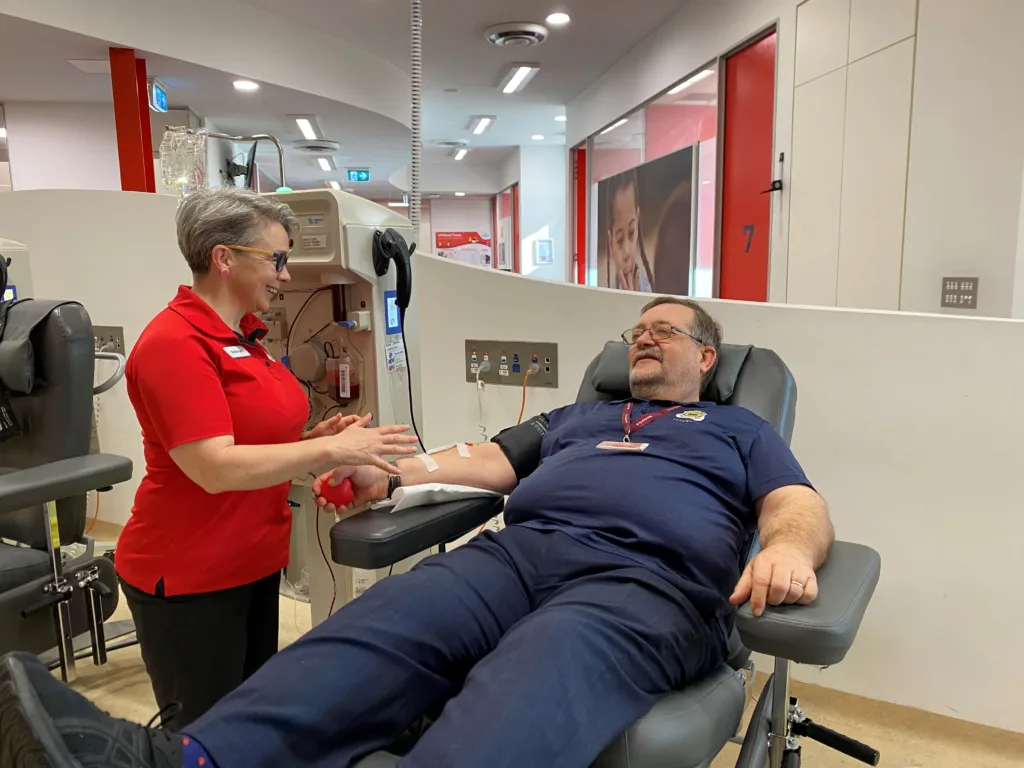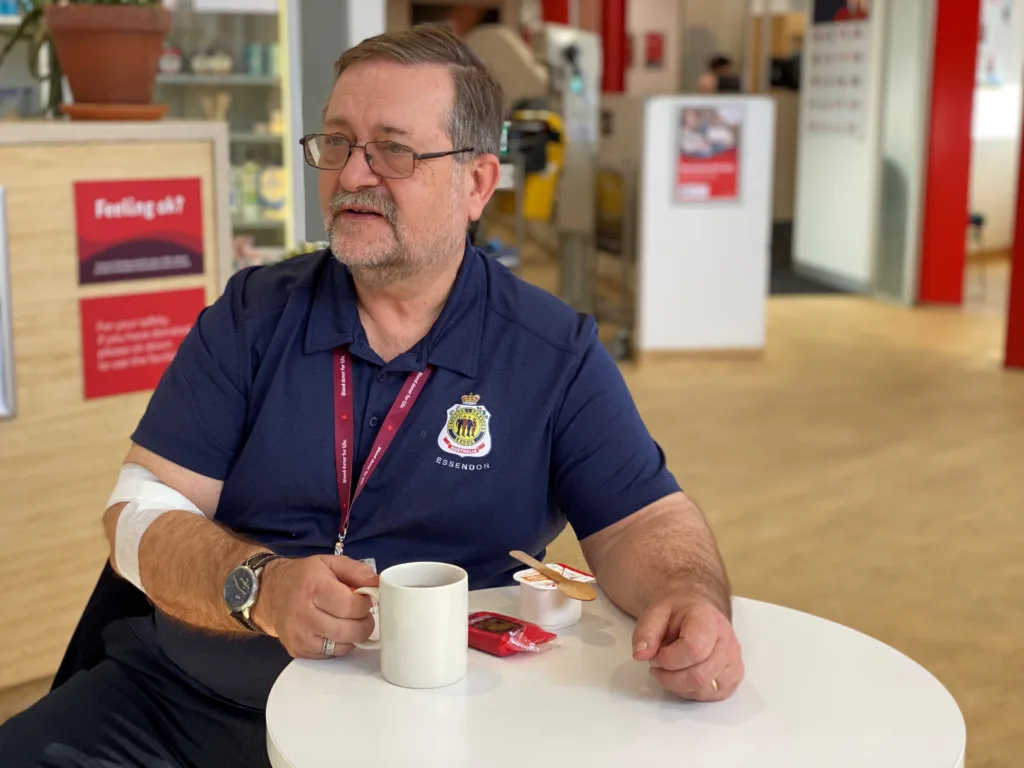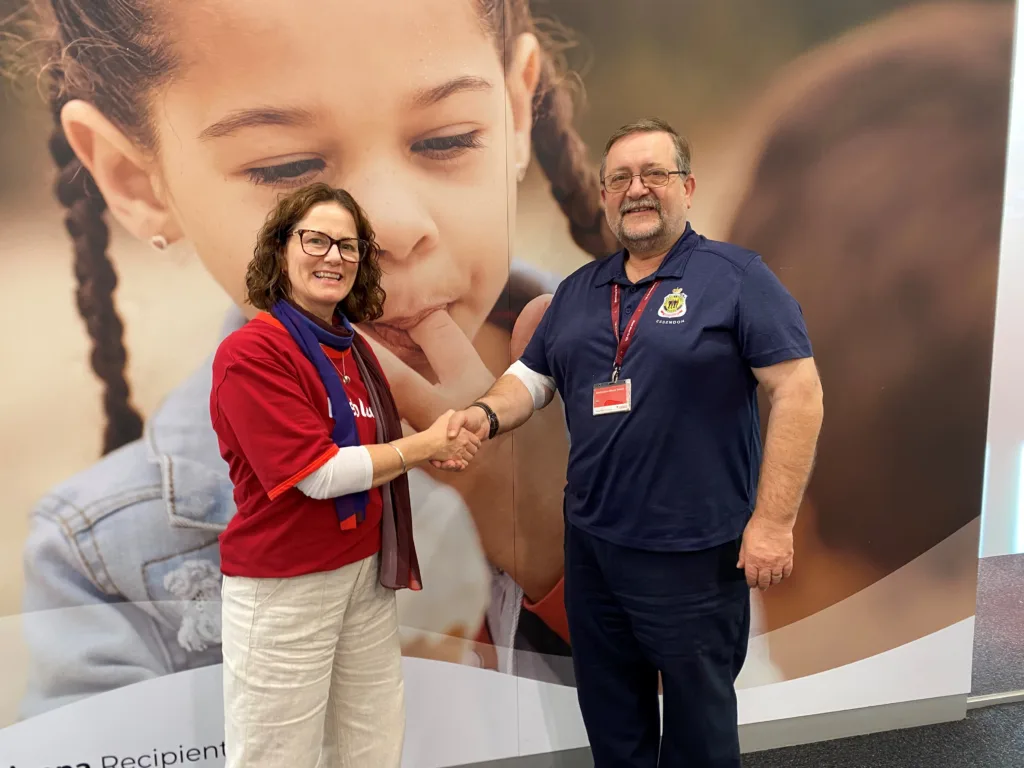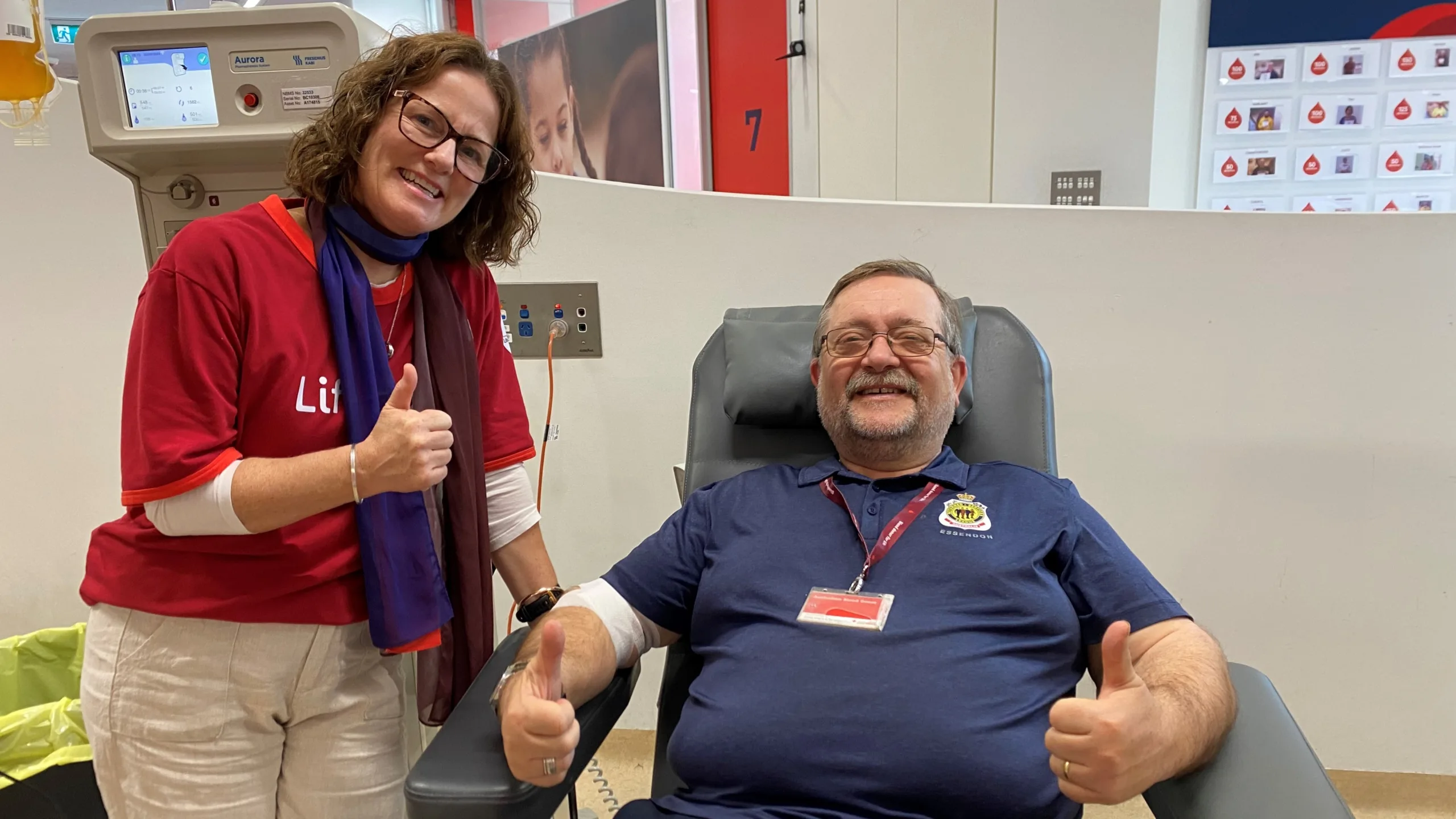A blood donor is needed every few minutes and Australian Red Cross Lifeblood’s latest campaign is calling for 100,000 Australians to find a reason to become blood and plasma donors.
With demand for blood at a 12-year-high and plasma demand at record levels, Lifeblood is urging Australians to roll up their sleeves.
Blood and plasma banks are currently maintained by 560,000 active donors, from a population of 27 million, but new donors are crucial to meet the nation’s growing needs.
In Australia, only males can donate platelets because of a serious condition called transfusion-related acute lung injury (TRALI). It’s a rare, but sometimes fatal condition that can lead to breathing difficulties and low blood oxygen in patients after a transfusion. It is thought to be caused by antibodies (proteins produced by the immune system which attack foreign substances) found more commonly in the blood of women.
Around three percent of Australians donate regularly, but Melbourne donor Ange Kenos, 68, is calling for the Greek community to consider donating as it might save someone’s life.

Ange said he donates blood regularly to do ‘something good for others,’ as well as personally knowing someone with Thalassemia who needs regular blood donations.
“In our ethnic communities we have a greater need, since so many suffer from Thalassemia and other illnesses that need blood transfusions,” Ange told The Greek Herald.
After donating blood on one occasion, Ange visited his pappou’s younger brother and was asked why he had a bandage on his arm. Ange replied that he had been to his local donor centre to make his regular blood donation.
“They both began to cry, and he [great-uncle] hugged me…” Ange recalled.
“[My aunty] then also hugged me, and my uncle/dad’s uncle explained that my aunty had received three blood transfusions recently due to a serious illness and without that blood, she would have died.
“He then said that as far as they were concerned, the [donated] blood all came from me, and I started crying.”
Ange recently made his latest donation, taking the total to 753 times that he has donated at his local Lifeblood Donor Centre. He began donating every three months when he was a first-year science student, but is now donating every two weeks with the aim of reaching 1,000 donations.
“Back then it was in a mobile unit, but the elderly ladies made the best iced coffee,” he said.
“It takes less than one hour. When you finish, you are invited to enjoy a variety of snacks.
“It is effectively a health check as they take your blood pressure and check your pulse. They also check your blood before it is given to a patient, so if they ever found anything wrong, you would be asked to see your doctor to take further tests.”

Over the years, Ange has donated blood at different donor centres and has even donated in Athens, Greece. Now he visits the closest Lifeblood Donor Centre to his home and has come to know the staff well.
“On the one hand, the staff knowing me and vice-versa, makes it feel like I am visiting friends,” Ange said.
“On the other hand, when they move on to other donor centres or to other nursing jobs, I do feel sad.”
Lifeblood spokesperson Genevieve Dobson said patients of all ages in Australia use blood before or after surgery, childbirth and cancer treatment.

“We encourage the Greek community to roll up a sleeve to donate blood or plasma to make a life-changing difference to patients in need,” she said.
“About half of Australia’s residents were either born overseas or have one parent born overseas. This increased diversity in our population leads to a corresponding need for diversity in blood stocks.”
It takes one hour for a blood donation appointment. This includes completing a health questionnaire, chatting to a staff member, up to ten minutes to donate, recover and enjoy the snacks provided. A blood plasma appointment takes longer.
Blood can be donated once every 12 weeks, while plasma can be donated fortnightly. Donor milestones are recognised with a certificate and a sweet treat from every 25th donation from 25 to 1000.
*To make an appointment call 13 14 95, book online at lifeblood.com.au or on the DonateBlood app.
